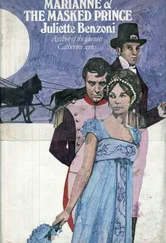If only the leafless season were already past, and the children, especially Rudolf, were cheerful, looking forward to the Christmas festivities, and the boy could take the winter break to get used to the diarrhea that tormented him each autumn when school started up, to get used to his stuttering, to his invariable I don’t know when standing in front of the teacher, and to his bedwetting, and especially to his headaches.
Then, perhaps, Rudolf’s restless nights would grow gradually more serene, his tooth gnashing would abate, and he wouldn’t cry so often in his sleep.
THERE ONCE WERE A PRINCE AND A PRINCESS
An hour came when Berta gave in, when she stopped sharing important life-lessons with her offspring, when she seized on an opportunity she’d long ignored. One morning, noticing the children were loath to get out of bed and put on their clothes, she said nothing, but called the teacher, said the children were sick, and sat down by them on the bed. After three days of this, Berta’s new life with her children was settled.
The children would stay in bed in the mornings, Berta would bring them breakfast, and once their appetite had been sated, all three would begin to sing. If a false note rang out, Berta didn’t reproach them, not even once; and, anyway, because they were her children, and she herself had a knack for music, they had a special flair for microtones, semitones, and other obscure intervals. They sang with all their might, and Rudolf and Little Berta managed to read their song lyrics from the songbook without difficulty. They began their singing hour with “Danube so blue, so blue …” continued with “There once were a prince and a princess …” and finished with “I know not, what does it mean …” then started over with “Danube so blue, so blue.”
After the singing hour they joked and played around. There was no homework, no F s, no letters home, no black-and-blue marks on their bodies from fighting or gymnastics, no jabs and no jeers, no “ifs” and “buts,” no “on-the-one-hands” or “on-the-others,” and no warnings about behaving better and minding their manners.
Berta told her stories to a rapt audience while she cooked, ironed, and put things in order. Rudolf and Little Berta never left their mother’s side; they circled around her, every single day, caressed her, comforted her when cleaning up seemed to drag on, when she broke a glass while washing up, if she burned the potatoes till they were black rock-hard clumps, if there were scorch marks on the hand towels or nightshirts after she ironed. She might interrupt the Sisyphean task of putting things in order to look for the Faust family photo album or her collection of letters from the front: from her father, her brothers, or Big Rudolf. At last she would come to the solemn decision to put everything in order once and for all.
Despite, or perhaps precisely because of her conscientiousness, she never made much progress in this final task. The children told her it was just too hard to pick out one fixed place for every single object in their apartment, but they also tried to help their mother and not shirk their own responsibility. Dreadful to think how many possible places there were for each and every object in the apartment! Berta could order things this way or that, or some other way altogether. In the end, nothing came of it but pointless discussion, a kind of defeated meditation on the weight of things, useless both to her and her offspring.
JIBBER-JABBER! WAR!
“Yes. Yes,” Berta recounted to her offspring for the umpteenth time. “That’s what it was like then. My mother always used to say, ‘Not for the life of me, Berta. If there’s a direct hit on building 13, then that is the way God wants it. I’m too old to start over again somewhere else anyhow. And suppose building 13 isn’t hit, suppose I was to move away to exactly the place where I would get hit? It’s not logical. That can’t be what God wants. What am I getting at? I’m saying you shouldn’t uproot an old tree and plant it somewhere else. That’s no good for it. No. I’m staying here.’ Me, I said to my mother, Mama, maybe you’re right. But this is war.”
Berta smiled. “And do you know what my mother answered then?”
Rudolf waved her off and said, impatiently, “Jibber-jabber! War! If I hear that one more time … True as the Lord God hung up there on the cross. I’m here and I’m staying here!”
Berta nodded and stared straight ahead, reflecting.
Little Berta asked, breathless, “And did building number 7 get hit?”
Berta nodded, and Rudolf said, “Of course it did. What else?”
“And Grandma was right there in building number 7? ‘I’m just going over for a little chat.’ Didn’t she say that?” asked Little Berta, who always savored the same questions whenever this story was told. Her mother shrugged and kept silent, as she did every time after this question was asked.
“Christ Almighty! Christ Almighty!” Little Berta shouted and scratched her chin.
“She was very strict but very proper. My mother. A wise woman.”
“I like you better,” Rudolf purred, and laid his head in Berta’s lap. Little Berta growled, “Make a little room for me too! You always have to have everything just for yourself,” and Rudolf scooted reluctantly to the side, so Little Berta too could have the chance to put her head on her mother’s lap.
Berta laid her left arm around her daughter and her right arm around her son. She was kneeling in the bedroom on the marriage bed; Berta counted the chimes from the wall clock: it was eight in the evening, two days, or so she thought, before Wilhelm’s return from Felsenstein.
HURRY HOME TO YOUR WIFE
Berta Schrei did not know that the chauffeur and Come-hither-boy had lied to his employer for reasons that even he himself did not understand: “My wife is bedridden at home right now with a fever of 104. I hoped it would subside with the passing of time. But now I’ve just been informed that the fever refuses to go down.”
“But Wilhelm, why didn’t you say so earlier? I was already thinking to myself,” Johannes Mueller-Rickenberg said, “something’s not right with Wilhelm. So: how many days do you think your Dulcinea’s recovery will take?” Wilhelm declared it would be three days at most, then stressed his regret that they had fallen into this predicament. Two thin creases of displeasure emerged between the eyebrows of Johannes Mueller-Rickenberg’s forehead. The down-turned corners of his mouth, with the lower lip drawn over the upper, signaled to Wilhelm his employer’s inclination to put the chauffeur to a test.
“If you must rush off to your Dulcinea, you’ll also have to come up with some excuse to give the countess, because I’m staying put — don’t forget to report to her that my own health is in an extremely precarious state right now. That’ll make her stop fretting so much about my absence. And let’s not forget the most important thing of all: the crime novels. Tell the countess I’ve brought them over with me personally from France. Just pick up a few French and English ones on the way home. She needs about two or three more weeks’ worth of crime-fodder. Keep that in mind when you do your shopping! And once your Dulcinea recovers, don’t neglect to tell her we’ll be busy for a little while longer in Felsenstein this year. That’s all.”
Johannes Mueller-Rickenberg nodded, turned around, and crossed the yard, with its shading of fall colors, his hands clasped behind his back and his shoulders bowed slightly forward. Wilhelm knew his master would be heading back to the house; he was in a hurry. His new conquest, Francesca, a fresh import from Brittany, needed attending to.
GRAVEDIGGER, THEN INFANTRYMAN, FOR A TIME
Читать дальше











